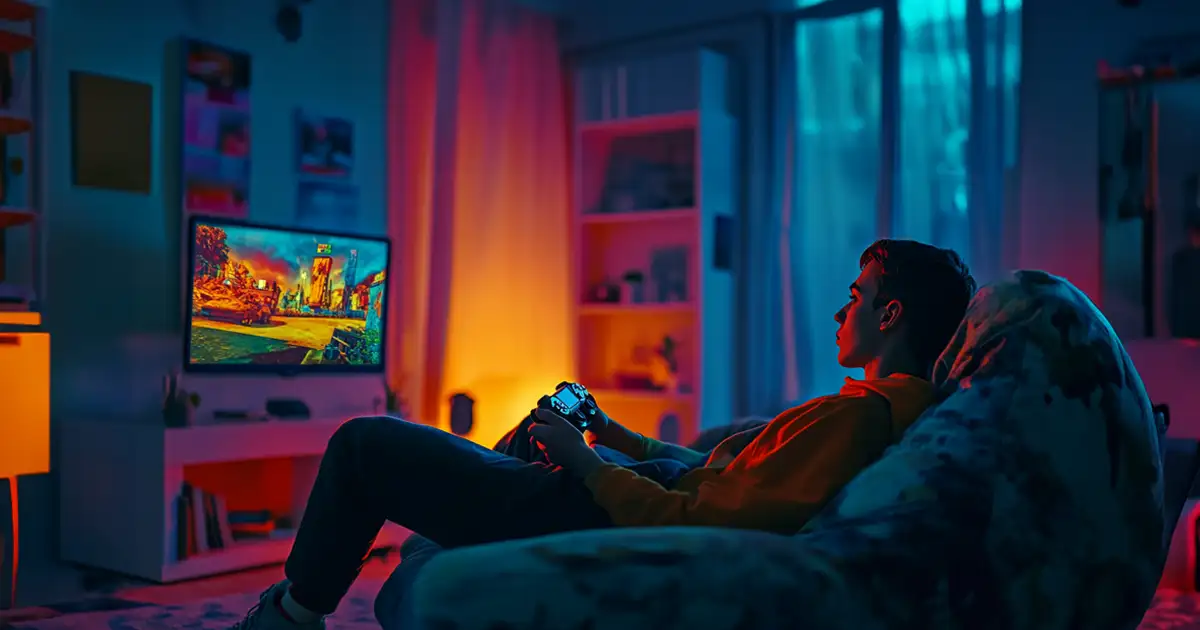Experts sound the alarm: Gambling in video games makes teenagers vulnerable
Anyone who thinks that video games are just a fun pastime is wrong. Many games are full of hidden gambling that tempt teenagers. Spin a wheel, buy a treasure chest, and maybe you’ll get that cool gear you’ve been dreaming about for weeks. It sounds innocent, but research from KU Leuven shows that these types of game elements push young people in the direction of real gambling. And no, that’s not just a hunch.
Professor Rozane De Cock explains:
“We have surveyed thousands of young people in Flanders in recent years. Three quarters of them had experience with gambling elements in games.”
That may sound innocent, but a year later the researchers saw that the same group started gambling for real more often. From scratch cards to bets among friends: for some teenagers, the step to gambling is quickly made.
How YouTubers and streamers make gambling hip
It doesn’t stop at the games themselves. Online gambling is also increasingly being given a hip look. Just look at YouTube or Twitch. Popular streamers there buy so-called loot boxes en masse. They open the treasure chests live and let their fans watch. Exciting, right? But the problem is that they often promote this with discount codes or even encourage them to bet money.
These influencers make gambling accessible and even attractive to their young followers. The chance that a teenager thinks: “I can do that too!” is high. And before you know it, they are sitting with a credit card in their hand.
What are loot boxes anyway?
If you have never heard of loot boxes: they are virtual treasure chests that you can buy in a game. You do not know in advance what is in them, and that makes it exciting. You might get something very valuable, but usually not. That is exactly why loot boxes are seen as games of chance in Belgium. And yes, that means that they are prohibited for minors. Yet young people often manage to get hold of them, simply via foreign sites or clever tricks in the games themselves.
Why the law falls short
According to Belgian law, loot boxes may not be accessible to minors. But in practice, it turns out that these rules are not always properly observed.
“The legislation has good intentions, but enforcement leaves much to be desired. We really need to look at how we can tackle this better.”
Katleen Peleman of the Flemish expertise center for Alcohol and other Drugs
Incidentally, it is not just about rules, but also about awareness.
“Parents, schools and young people need to understand that gambling in games is not as innocent as it seems. We are increasingly seeing that this leads children to enter the world of real gambling more quickly.”
What parents can do
As a parent, it is not always easy to see exactly what your child is doing while gaming. Professor De Cock notes that many parents do not even know what loot boxes are, let alone pay attention to the warning labels on games.
“Games often have clear age restrictions and warnings, but parents often ignore those labels.”
A simple tip? Play along with your child. Not only will you learn to understand the games better, but you will also show that you are interested in what they like. Moreover, you can more easily start a conversation about the risks of gambling.
Why this concerns everyone
It is clear: gambling in video games is a problem that we cannot ignore. Whether you are a parent, teacher, policy maker or gamer, everyone has a role to play in protecting young people. Because let’s be honest: we don’t want a hobby like gaming to turn into a gambling addiction, do we?


